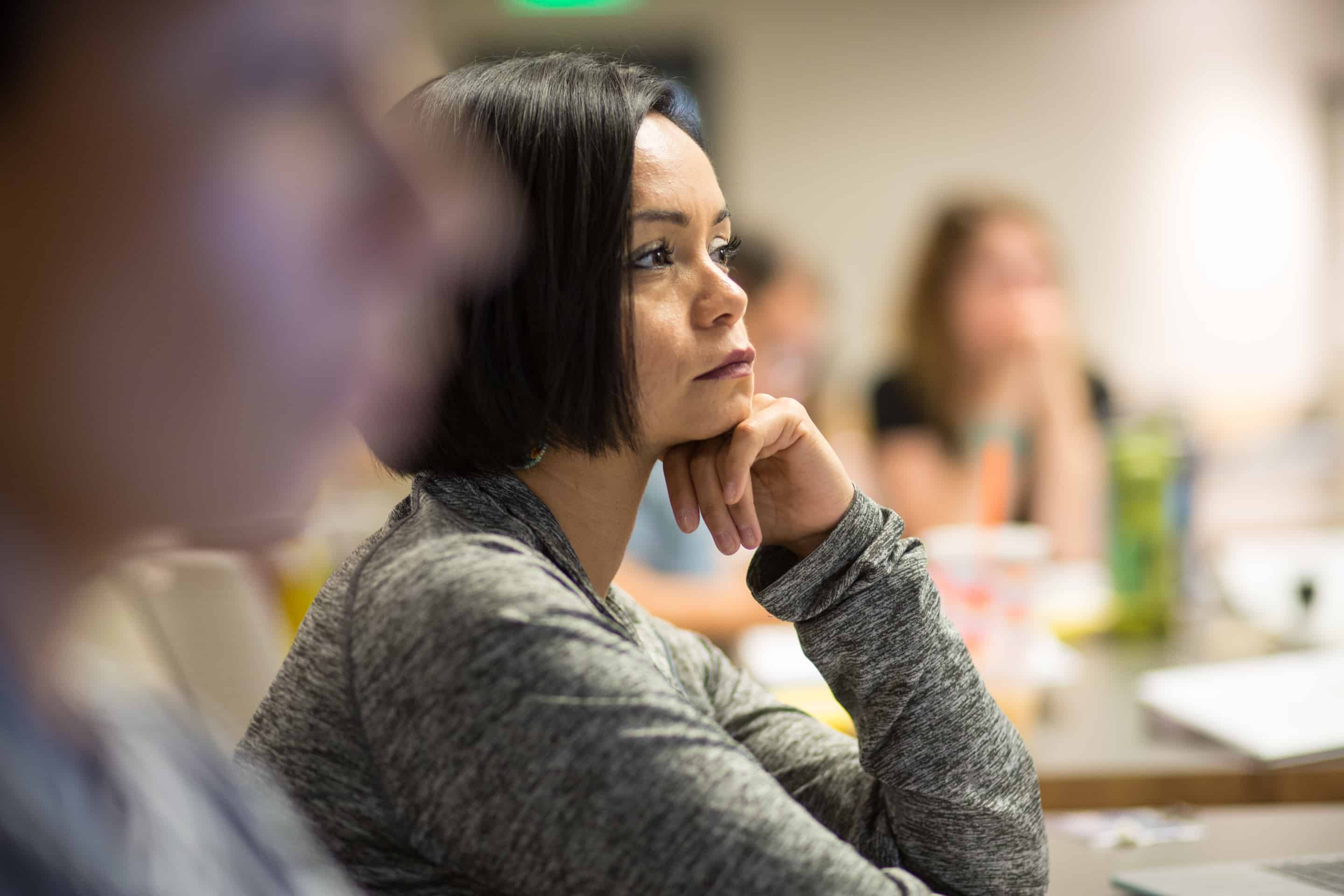As a teenager Amanda Wyatt helped care for her grandmother, who had diabetes. In Ms. Wyatt’s current role as an Advanced Practice Registered Nurse Clinical Nurse Specialist in the Muscogee (Creek) Nation, where she is enrolled, she now knows that medicine and technology could have prevented some of the complications and suffering she saw with her grandmother’s condition. Ms. Wyatt is determined to help others avoid these outcomes by obtaining training to improve diabetes services in her tribal nation.
Ms. Wyatt began working toward the Johns Hopkins Center for American Indian Health Public Health Training Certificate for American Indian Health Professionalsin 2017. She was drawn to this program because of the Center’s convenient week-long courses, offered during Summer and Winter Institutes, the unrushed pace of the certificate program, and the center’s courses and professors, which were highly relevant for her professional goals.
“My first institute was inspiring—in fact, life-changing,” she said. “The highly encouraging environment helps me feel valued and respected, which has helped me move forward in my professional life.”

“The funding support from the Zegar Family Foundation helped tremendously,” she added. The foundation has supported 18 scholars from 13 different tribal nations.
During Ms. Wyatt’s trips to Baltimore, the Center’s training team introduced her to faculty at the Johns Hopkins School of Nursing. The training team encouraged her to apply for the Doctor of Nursing Practice degree program. In May 2019, she enrolled as the sole American Indian in the cohort (in fact, the second ever to pursue the degree).
This flexible program allows her to continue patient care, which brings personal satisfaction, incorporate elements of her training to improve diabetes care, and, crucially, keep her two children near family in Oklahoma.
Lieutenant Commander, master juggler
As a LieutenantCommander in the U.S. Public Health Service Commission Corps, serving in the Koweta Indian Health Facility’s Diabetes Management Program, Ms. Wyatt helps patients develop attainable, individualized treatment plans and goals. She also reinforces the importance of critical elements of diabetes management—yearly screenings, immunizations, foot care, healthy lifestyle through diet and exercise, self-monitoring of blood glucose, taking medications, and keeping routine appointments.
“I love being a nurse and seeing patients work hard to reach their goals,” said Ms. Wyatt. “I consider it a privilege to have patients entrust me with their healthcare.”
It’s a challenge at times to juggle school and work, but she’s looking ahead to when she can secure better outcomes for her community—increased access to care, decreased ER visits, lower costs due to fewer complications, and even cultural preservation.
